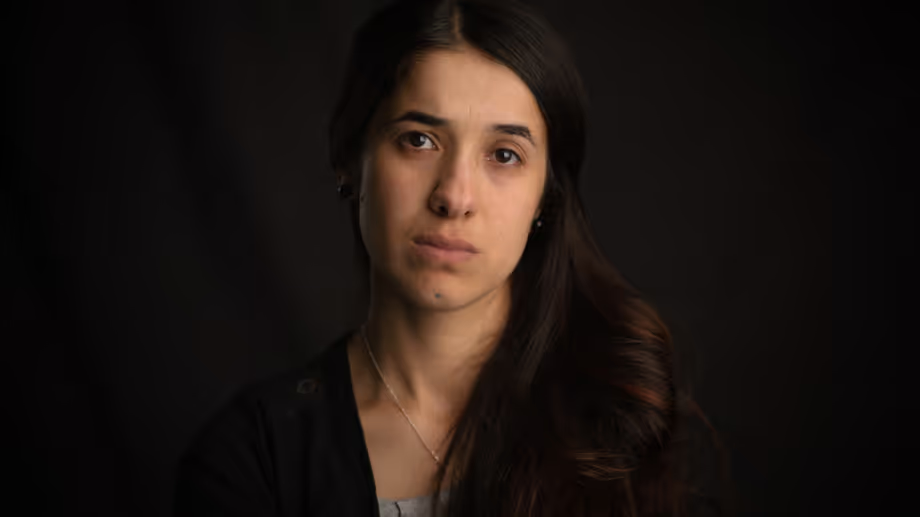On Her Shoulders: Discussion Guide Discussion Prompts: The Role of the Viewer
Discussion Prompts: The Role of the Viewer

When you were watching the film, what was your reaction to Nadia Murad and to the Yazidi people? Did your reaction change over the course of the film?
Murad shares her traumatic story over and over in the film. What are a few different ways people react to her story? Why do you think the media and political leaders repeatedly ask Murad to talk about traumatic rape? Why do these stories continue to be interesting to the public? Do you think the public would still be interested in stories like Murad’s if she didn’t tell the details of rape? What does this public viewer interest in stories of violence against women say about the status of women in our society and globally? It is said that “sex sells”. Do you think “rape sells” as well and what does that say about media consumers? Who do you think is driving these narratives – the media, viewer, both? And in what ways? Do you think viewers have the ability to influence the media narrative? How so?
In the film people take actions like giving Nadia Murad medals and awards, bringing her to meet high-profile diplomats, taking her on exclusive tours and sometimes advancing her cause. What kinds of actions does Murad want? Do we have a responsibility to act after we have witnessed her story? How?
The media and diplomatic bodies portray Nadia Murad in a way that differs from how she sees herself. Were you influenced by how Murad’s identity was broadcast? For example, diplomatic agencies tend to portray her as a hero, which is often in contrast to how Nadia sees herself. Do you see her as a hero? Why or why not?
What are two words you would use to describe Nadia? Do you think she would use these words to describe herself? Why might there be a difference between how you view Nadia and how she views herself?
